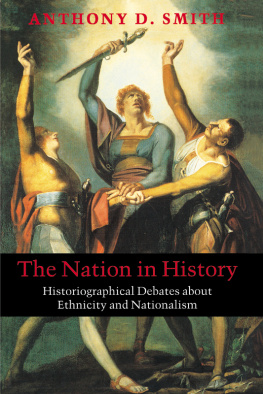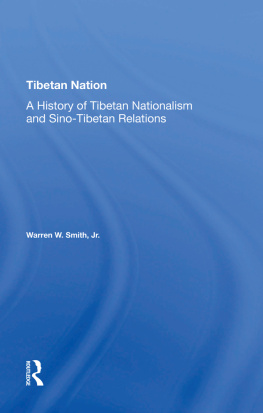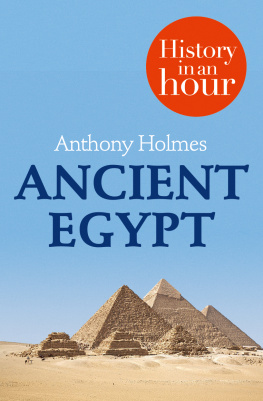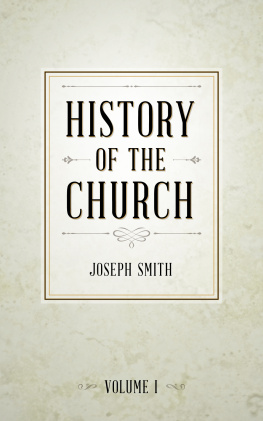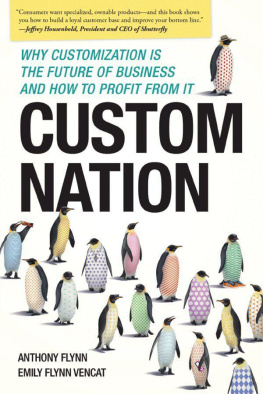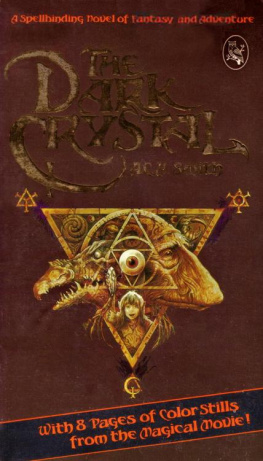Smith Anthony D. - Nation in History
Here you can read online Smith Anthony D. - Nation in History full text of the book (entire story) in english for free. Download pdf and epub, get meaning, cover and reviews about this ebook. year: 2014, publisher: Wiley, genre: Politics. Description of the work, (preface) as well as reviews are available. Best literature library LitArk.com created for fans of good reading and offers a wide selection of genres:
Romance novel
Science fiction
Adventure
Detective
Science
History
Home and family
Prose
Art
Politics
Computer
Non-fiction
Religion
Business
Children
Humor
Choose a favorite category and find really read worthwhile books. Enjoy immersion in the world of imagination, feel the emotions of the characters or learn something new for yourself, make an fascinating discovery.
- Book:Nation in History
- Author:
- Publisher:Wiley
- Genre:
- Year:2014
- Rating:5 / 5
- Favourites:Add to favourites
- Your mark:
- 100
- 1
- 2
- 3
- 4
- 5
Nation in History: summary, description and annotation
We offer to read an annotation, description, summary or preface (depends on what the author of the book "Nation in History" wrote himself). If you haven't found the necessary information about the book — write in the comments, we will try to find it.
Nation in History — read online for free the complete book (whole text) full work
Below is the text of the book, divided by pages. System saving the place of the last page read, allows you to conveniently read the book "Nation in History" online for free, without having to search again every time where you left off. Put a bookmark, and you can go to the page where you finished reading at any time.
Font size:
Interval:
Bookmark:
THE NATION
in HISTORY
Historiographical Debates about
Ethnicity and Nationalism
Anthony D. Smith
POLITY PRESS
Copyright 2000 by the Historical Society of Israel
First published in the United Kingdom in 2000 by Polity Press in association with Blackwell Publishers Ltd
Simultaneously published in the United States of America by University Press of New England, Hanover, NH
Editorial office:
Polity Press
65 Bridge Street
Cambridge CB2 1UR, UK
Marketing and Production:
Blackwell Publishers Ltd
108 Cowley Road
Oxford OX4 1 JF, UK
All rights reserved. Except for the quotation of short passages for the purposes of criticism and review, no part of this publication may be reproduced, stored in a retrieval system, or transmitted, in any form or by any means, electronic, mechanical, photocopying, recording or otherwise, without the prior permission of the publisher.
Except in the United States of America, this book is sold subject to the condition that it shall not, by way of trade or otherwise, be lent, re-sold, hired out, or otherwise circulated without the publishers prior consent in any form of binding or cover other than that in which it is published and without a similar condition including this condition being imposed on the subsequent purchaser.
The lectures were originally presented under the auspices of the Historical Society of Israel, the Menahem Stern Jerusalem Lectures.
ISBN 978-0-7456-6885-7 (Single-user ebook)
A catalogue record for this book is available from the British Library.
This book is printed on acid-free paper.
Contents
Foreword
Yosef Kaplan
In a few weeks we shall mark the tenth anniversary of the tragic death of our teacher and friend Menahem Stern. Once again we shall go up to the cemetery on Har Hamenuhot in Jerusalem, as we have done every year; again we shall recite those eternal words from the Psalms; and again we shall feel as if the author of those sublime verses were referring to Sterns spirit when he wrote: Oh, how I love your teachings! They are my meditation all day long.... I have kept my feet from every evil way, so that I might keep your word (Ps. 119:97, 101).
It was easy to love Menahem Stern, and indeed he was beloved by everyone who had the privilege of knowing him. He was a man of peace in the full meaning of the term, a humanist with his entire heart and soul, who never allowed even a hint of hatred to stain his behavior, his way of life, and his humanistic worldview.
His life was cut short in Jerusalem, the city to which he was bound with all the cords of his heart, by blind hatred that was entirely foreign to his personality and his exemplar humanae vitae.
In establishing the Jerusalem Lectures in History in Memory of Menahem Stern six years ago, the Historical Society of Israel wished to express the feelings of esteem and obligation of the community of historians in Israel to the greatest scholar of Jewish history during the Second Temple period in our generation and one of the most prominent scholars ever produced by the field of Jewish studies. In this way we wished to honor the memory and intellectual legacy of a brilliant historian who, from the start of his studies at the Hebrew University in Jerusalem in 1943 until his death, never interrupted his historical research, not even for a single day; a historian of astounding erudition, whose knowledge was not restricted to specific periods or fields but who felt at home in all periods of Jewish history and no less so in classical and European cultures.
Opening address to Professor Anthony D. Smiths Jerusalem Lectures in History in Memory of Menahem Stern, 11 May 1999.
Nationalism played a central role in Menahem Sterns life. Identification with the rebirth of the Jewish nation brought his parents to the Land of Israel a short time before the outbreak of the Second World War. Stern was then thirteen years old, a talented boy from a Yiddish-speaking family in Bialystock, where he absorbed not only the riches of the ancient Jewish heritage but also the foundations of modern Hebrew culture. When he became a historian, he gave expression, throughout his academic career and in his extensive scholarship, to his deep commitment to the renewal of Hebrew culture, which is one of the outstanding marks of modern Jewish nationalism. To our great regret, nationalism, in its dark aspect, also played a role in his death.
He had reservations about the name The Jerusalem School, which was applied to the group of historians who laid the guidelines for research in Jewish history at the Hebrew University in Jerusalem and to the first generation of their students, to which Stern belonged. At the same time, he realized that these historians and he himself shared a national approach to Jewish history. Menahem Stern was one of the five Jerusalem historians who collaborated in writing the comprehensive History of the Jewish People, edited by Haim Hillel Ben-Sasson. It was clear to him that a definition applicable to those five historians, despite the great differences among them, would take into account their inclination to describe Jewish history as the history of a living nation ... including the various aspects of its life, and not, emphatically, the history of Judaism. There is no doubt that his own work was deeply influenced by the perennialist approach to Jewish history and to the Jewish nation, which was one of the distinguishing features of the historiographical view of those who founded the study of Jewish history in Israel.
In the general introduction to the Hebrew edition of the History of the Jewish People, which was published in 1969 (interestingly, that introduction was not published in the English edition that came out in 1976), Ben-Sasson wrote: The national framework is still appropriate for the true clarification of history, for it is the natural and conscious framework that organizes generation Ben-Sasson added:
The continued existence of one nation out of many is a series of transformations within the framework of unifying factors and forces. The Jewish nation has recorded one of the oldest continuous histories in the world. The proper study of the history of this nation shows that in the movement and dispersal of the Jews throughout their long and varied history, there is far more continuity in the body that bears the culture, far more preservation of symbols of unity and solidarity, and far more persistence of culture than among most of the nations by whose side and in whose shadow the Jews lived.
Though there are good reasons to suppose that Stern was not entirely in agreement with some of these statements, there is no doubt that his work also belongs to the category of continuous perennialism, as defined by Anthony Smith; and in Sterns relation to the Zealots and Sicarii, whom he defined as branches of a national liberation movement, one can find something resembling the retrospective nationalism that characterized the work of more than a few historians of Ancient Israel and of scholars of Jewish history from the Hasmonean period to the Bar-Kokhba uprising.
The study of Jewish history has expanded since then, and historiographical controversies have arisen around the question of the continuity of Jewish history, the place of nationalism in it, and so on. The influence of national ideology on Jewish historiography here in Israel has declined since then, for the same reasons that the old belief in the unity and superiority of the nation has declined in the contemporary West, and of course for other reasons as well, which are peculiar to our experience here in Israel. The penetrating discussions that take place in Israeli society regarding national and cultural identity naturally echo within academic discussions of continuity and change in Jewish history and of the connection between modern Jewish nationalism and Jewishness in premodern periods. This is not surprising, though, in this controversy, regrettably, we often lack the modesty of which Stern spoke and that was so typical of his scholarship. In these heated arguments, which are naturally imbued with political and ideological assumptions, imprecise concepts are frequently aired; this does not favor the clarification of issues, which demands more than a little self-restraint.
Next pageFont size:
Interval:
Bookmark:
Similar books «Nation in History»
Look at similar books to Nation in History. We have selected literature similar in name and meaning in the hope of providing readers with more options to find new, interesting, not yet read works.
Discussion, reviews of the book Nation in History and just readers' own opinions. Leave your comments, write what you think about the work, its meaning or the main characters. Specify what exactly you liked and what you didn't like, and why you think so.

